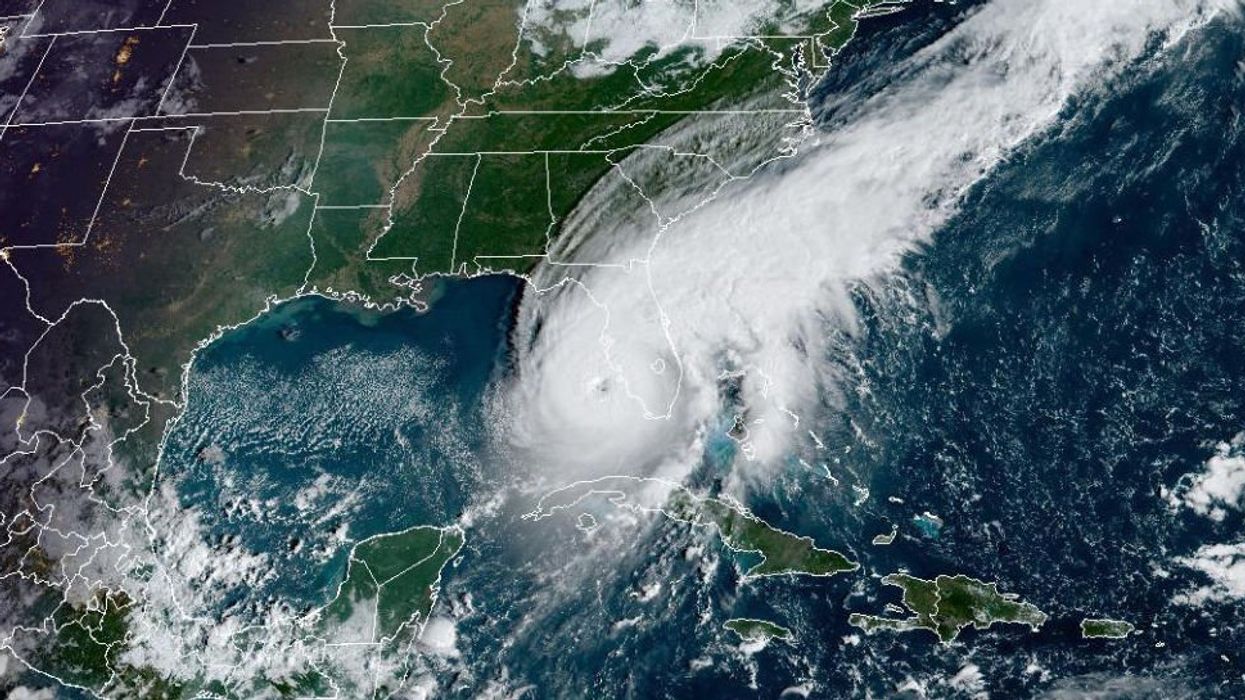
NOAA via Getty Images

Meteorologist Dr. Ryan Maue rebuked CNN reporter Bill Weir on Wednesday for claiming that fossil fuels and climate change are intensifying storms.
Before Hurricane Idalia made landfall Wednesday morning, CNN anchor Abby Phillip asked Weir, CNN's chief climate correspondent, about how to protect communities from natural disasters, like hurricanes.
The question was flawed from the start because Phillip claimed that "warmer water, historically warm water" means "communities now are suddenly in the path of hurricanes where they have not been before." Still, Weir took the bait, connecting "wicked storms," fossil fuels, and climate change.
"Is there anything that can be done to protect [these communities] going forward?" Phillip asked.
"That's an amazing question," Weir responded. "It's the biggest, sort of trillion-dollar question about how you adapt communities like this to the world that we're already now living in at the same time trying to mitigate further more wicked storms down the road with more fossil fuel pollution."
Weir added that the cost of fossil fuel pollution-driven climate change is "becoming bigger with every storm."
"Science has been warning about this for a very long time. In many ways, it's been predicted," he claimed. "It's the speed that we're seeing these changes that has taken most folks by surprise."
The CNN segment was completely misinformed, Maue later pointed out, because there was a major hurricane that hit in the same area as Idalia in the 19th century — long before widespread usage of fossil fuels.
"Except, the landfall of Idalia is only strongest along coastal area since 1896 Cedar Keys hurricane (125 mph) 125-years ago, well prior to modern fossil fuel usage," Maue wrote on social media.
Maue, whose doctoral research focused on tropical cyclones, also exposed the reductionist connection that Weir and Phillip made between warm water and a strong cyclone.
"Why didn't Idalia rapidly intensify during the 3 days it sat over the NW Caribbean? Did someone forget to push a button or turn a knob?" he mocked, explaining the water in the Northwestern Caribbean is "very warm and deep."
Finally, Maue wondered why hurricanes in the mid-2000s — like Hurricanes Katrina, Rita, and Wilma, which formed over comparatively cooler waters — were significantly stronger than Idalia if the accumulation of fossil fuel pollutants is intensifying cyclonic storms through climate change over time.
Those are probably questions that Weir, whose college degree focused on journalism and writing, cannot answer.
Like Blaze News? Bypass the censors, sign up for our newsletters, and get stories like this direct to your inbox. Sign up here!